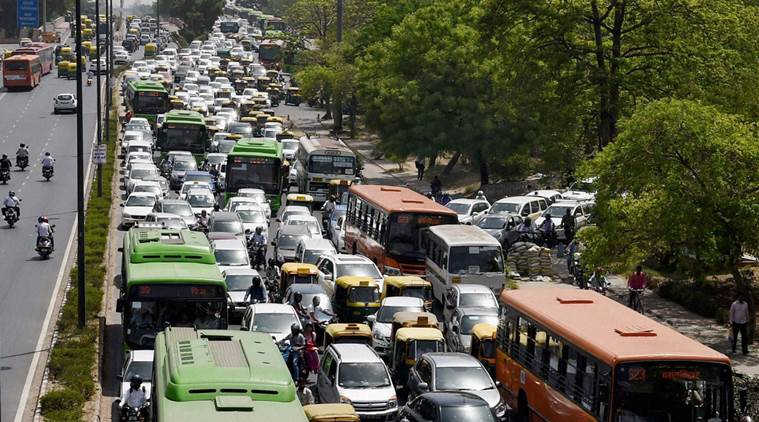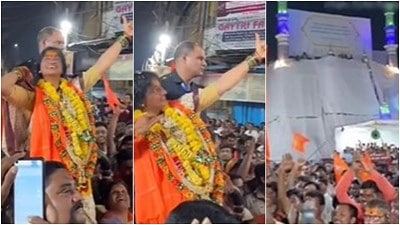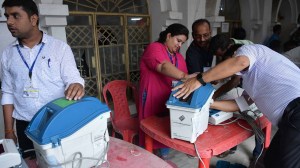- India
- International
Delhi: Transport dept gears up for odd-even, free bus rides to overlap
While the free rides scheme will be implemented from October 29, the car rationing policy will come into effect on November 4 and will go on till November 15.
 The Delhi government said 300 new buses will augment the orange cluster bus scheme, which has 1,679 buses under its fleet, by the end of October.
The Delhi government said 300 new buses will augment the orange cluster bus scheme, which has 1,679 buses under its fleet, by the end of October.
Free rides for women in buses and the odd-even scheme – the radical policy interventions, with their launch dates separated by five days, could together test the capital’s public transport system.
While the free rides scheme will be implemented from October 29, the car rationing policy will come into effect on November 4 and will go on till November 15.
In terms of public transport, Delhi, with a population of over two crore, has around 5,500 buses and a 373-km-long Metro rail network, which also touches parts of neighbouring NCR cities such as Gurgaon, Noida, Faridabad and Ghaziabad.
The Delhi government said 300 new buses will augment the orange cluster bus scheme, which has 1,679 buses under its fleet, by the end of October.
“As of now, the proposed induction of buses appears to be on track. Since the department had no prior information that the odd-even scheme was set to return, we are still working out the modalities of implementation. We have time to make adequate arrangements,” a senior government official said.

On September 13, Gahlot visited the production facility of Tata Motors in Lucknow “to ensure the timely induction of buses”. The company has assured to ramp up its production line of buses, Gahlot tweeted Saturday.
During the first two phases of the odd-even scheme in 2016, the government had to hire private buses, including ones to cater to private schools. The move had faced no resistance during the inaugural phase as the winter break was underway.
However, the government had to make do with only 500 hired buses during the second phase of the scheme in April, as schools refused to enlist their buses, and DTC struggled to lend its 700-odd buses which were on school duty for ferrying people in general.
According to sources, after it got a boost because of the Supreme Court judgment that allowed it to decide which groups it wanted to include in exemptions, the government is working out a way to ensure schoolgoing children and their parents are not hit by the decision.
“Including two-wheelers in the scheme does not look feasible right now but stricter implementation of PUC norms means that we will not have many polluting vehicles on the road in any case,” a senior official said.
No exemption will add to transport pressure, considering 68 per cent of the city’s transport fleet are two-wheelers.
Metro, which ferries commuters below its projections, is in a better place to absorb the potential rise in ridership.
During the first two phases, DMRC had run extra trips while also pressing additional feeder buses into service.“We are awaiting communication from the government,” a DMRC spokesperson said.
When the AAP took office in 2015, there were 4,879 DTC buses. The number now stands at 3,796 as many standard floor buses had to be scrapped.
Apr 19: Latest News
- 01
- 02
- 03
- 04
- 05






































